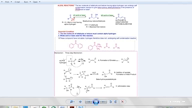
Model Town, Delhi, India - 110052.
Details verified of Ak Singh✕
 Identity
Identity
 Education
Education
Know how UrbanPro verifies Tutor details
Identity is verified based on matching the details uploaded by the Tutor with government databases.

Hindi
English
![]() Gorakhpur University 2007
Gorakhpur University 2007
Master of Science (M.Sc.)
Model Town, Delhi, India - 110052
![]() Phone Verified
Phone Verified
![]() Email Verified
Email Verified
Report this Profile
Is this listing inaccurate or duplicate? Any other problem?
Please tell us about the problem and we will fix it.
Class Location
![]() Online (video chat via skype, google hangout etc)
Online (video chat via skype, google hangout etc)
![]() Student's Home
Student's Home
![]() Tutor's Home
Tutor's Home
Years of Experience in Class 11 Tuition
3
Board
CBSE
CBSE Subjects taught
Chemistry
Taught in School or College
No
Class Location
![]() Online (video chat via skype, google hangout etc)
Online (video chat via skype, google hangout etc)
![]() Student's Home
Student's Home
![]() Tutor's Home
Tutor's Home
Years of Experience in Class 12 Tuition
3
Board
CBSE
CBSE Subjects taught
Chemistry
Taught in School or College
No
Class Location
![]() Online (video chat via skype, google hangout etc)
Online (video chat via skype, google hangout etc)
![]() Student's Home
Student's Home
![]() Tutor's Home
Tutor's Home
Years of Experience in Advanced Placement Tests Coaching classes
3
AP subjects catered to
Chemistry
Class Location
![]() Online (video chat via skype, google hangout etc)
Online (video chat via skype, google hangout etc)
![]() Student's Home
Student's Home
![]() Tutor's Home
Tutor's Home
Years of Experience in Class 9 Tuition
3
Board
CBSE, ICSE, State
CBSE Subjects taught
Science
ICSE Subjects taught
Chemistry, Physics, Biology
Taught in School or College
Yes
State Syllabus Subjects taught
Science
Teaching Experience in detail in Class 9 Tuition
2 Year
Class Location
![]() Online (video chat via skype, google hangout etc)
Online (video chat via skype, google hangout etc)
![]() Student's Home
Student's Home
![]() Tutor's Home
Tutor's Home
Years of Experience in Class 10 Tuition
3
Board
CBSE, ICSE, State
CBSE Subjects taught
Science
ICSE Subjects taught
Chemistry, Physics, Biology
Taught in School or College
Yes
State Syllabus Subjects taught
Science
Teaching Experience in detail in Class 10 Tuition
2 Year
1. Which school boards of Class 12 do you teach for?
CBSE
2. Have you ever taught in any School or College?
No
3. Which classes do you teach?
I teach Advanced Placement Tests Coaching, Class 10 Tuition, Class 11 Tuition, Class 12 Tuition and Class 9 Tuition Classes.
4. Do you provide a demo class?
Yes, I provide a free demo class.
5. How many years of experience do you have?
I have been teaching for 3 years.
Answered on 06/12/2017 Learn CBSE/Class 10/Science
Answered on 06/12/2017 Learn CBSE/Class 10/Science
Answered on 05/12/2017 Learn CBSE/Class 9/Science
Answered on 04/12/2017 Learn CBSE/Class 10/Science
Class Location
![]() Online (video chat via skype, google hangout etc)
Online (video chat via skype, google hangout etc)
![]() Student's Home
Student's Home
![]() Tutor's Home
Tutor's Home
Years of Experience in Class 11 Tuition
3
Board
CBSE
CBSE Subjects taught
Chemistry
Taught in School or College
No
Class Location
![]() Online (video chat via skype, google hangout etc)
Online (video chat via skype, google hangout etc)
![]() Student's Home
Student's Home
![]() Tutor's Home
Tutor's Home
Years of Experience in Class 12 Tuition
3
Board
CBSE
CBSE Subjects taught
Chemistry
Taught in School or College
No
Class Location
![]() Online (video chat via skype, google hangout etc)
Online (video chat via skype, google hangout etc)
![]() Student's Home
Student's Home
![]() Tutor's Home
Tutor's Home
Years of Experience in Advanced Placement Tests Coaching classes
3
AP subjects catered to
Chemistry
Class Location
![]() Online (video chat via skype, google hangout etc)
Online (video chat via skype, google hangout etc)
![]() Student's Home
Student's Home
![]() Tutor's Home
Tutor's Home
Years of Experience in Class 9 Tuition
3
Board
CBSE, ICSE, State
CBSE Subjects taught
Science
ICSE Subjects taught
Chemistry, Physics, Biology
Taught in School or College
Yes
State Syllabus Subjects taught
Science
Teaching Experience in detail in Class 9 Tuition
2 Year
Class Location
![]() Online (video chat via skype, google hangout etc)
Online (video chat via skype, google hangout etc)
![]() Student's Home
Student's Home
![]() Tutor's Home
Tutor's Home
Years of Experience in Class 10 Tuition
3
Board
CBSE, ICSE, State
CBSE Subjects taught
Science
ICSE Subjects taught
Chemistry, Physics, Biology
Taught in School or College
Yes
State Syllabus Subjects taught
Science
Teaching Experience in detail in Class 10 Tuition
2 Year
Answered on 06/12/2017 Learn CBSE/Class 10/Science
Answered on 06/12/2017 Learn CBSE/Class 10/Science
Answered on 05/12/2017 Learn CBSE/Class 9/Science
Answered on 04/12/2017 Learn CBSE/Class 10/Science

Post your Learning Need
Let us shortlist and give the best tutors and institutes.
or
Send Enquiry to Ak Singh
Let Ak Singh know you are interested in their class
Reply to 's review
Enter your reply*
Your reply has been successfully submitted.